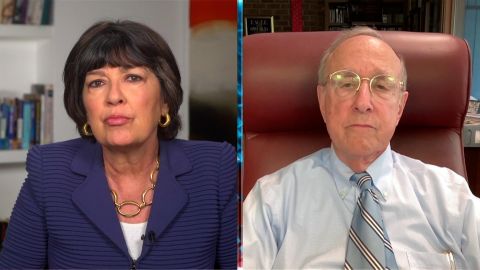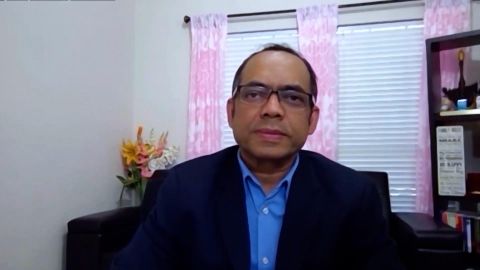Read Transcript EXPAND
CHRISTIANE AMANPOUR: There’s this iconic picture of the CBS anchor interrogating and interviewing R. Kelly, and he not just denying it, but getting up there and physically imposing his body in a hugely intimidating manner on her, as if to say, don’t you even think about this. Does that image speak beyond the actual issues or to the very heart of these issues?
ANITA HILL, BRANDEIS UNIVERSITY: Of course, it speaks to the heart of the issues, the issues about power, how powerful men do intimidate and abuse, but also how they keep from getting caught and prosecuted. And we saw evidence of that, just the willingness to try to escape any accountability through his intimidation of Gayle King, a journalist who was just trying to do her job at that time. And there was actually backlash against Gayle for that interview.
AMANPOUR: Why do you think that is? Why was there backlash against somebody who was just asking him journalistic questions, much less against, obviously, the victims, which is a terrible situation, but one that’s persistent?
HILL: Well, the short answer to that is that we have a culture of disbelieving survivors and victims and believing their powerful accusers. And power comes in many ways. It can be power to control your job, or to control your grades, or your getting a degree in the university. It can be a power to — over whether or not you’re going to get a raise in your workplace. So we have to look at power and the power dynamics that a lot of these situations occur under, and realize that power is always an element. And it’s also the thing that protects these men. We believe — not only do we disbelieve victims and survivors, but we have this tendency to always believe the most powerful men. And they will use that power to influence anyone who might there be a detractor.
About This Episode EXPAND
Anita Hill discusses her new book “Believing: Our Thirty Year Journey to End Gender.” Military historian Richard Kohn weighs in on General Milley’s testimony before the Senate. World Without Hate founder Rais Bhuiyan explains why he has dedicated his life to breaking the cycle of violence. The late artist Christo’s nephew Vladimir Yavachev reflects on his uncle’s legacy.
LEARN MORE


